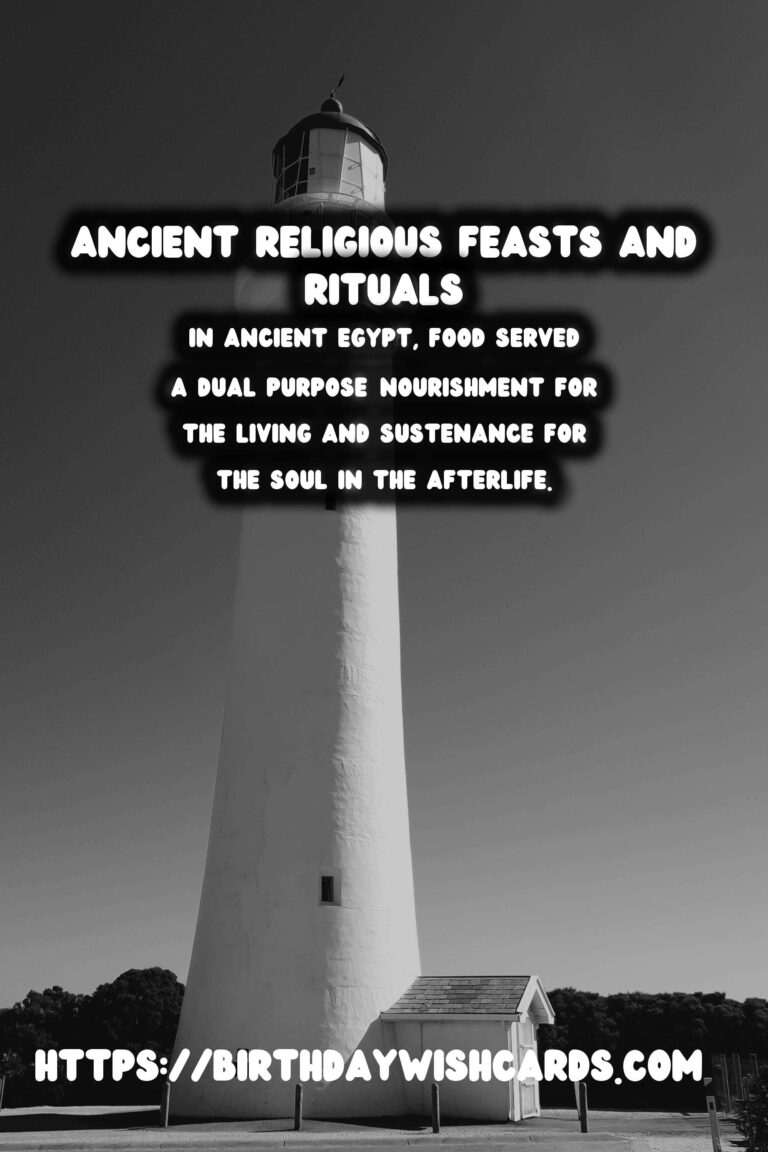
The intersection of food and religion is a rich tapestry that has woven through human history, influencing cultures, traditions, and societies. From ancient sacrificial rituals to symbolic feasts, food has played a crucial role in the expression of religious beliefs across civilizations.
In ancient Egypt, food served a dual purpose—nourishment for the living and sustenance for the soul in the afterlife. Offerings were made to deities and ancestors, believing that care for the deceased would ensure protection and favor from the gods.
The Egyptians: Offerings and Afterlife
Ancient Egyptians meticulously prepared feasts for their gods, filling tombs with offerings of bread, meat, fruits, and beer. These offerings were integral to their religious ceremonies, intended to sustain the deceased as they journeyed through the afterlife. The belief was that without proper nourishment in the afterlife, the soul could not attain peace.
The role of food as an offering symbolized a bridge between the physical and spiritual worlds. Rituals involving food were intricate, with recipes inscribed on walls as a perpetual guide for the living to perform their duty to the deceased.
Ancient Greece: Divine Banquets
In ancient Greece, food had a prominent place in religious practice and mythology. Banquets were often reflective of divine gatherings, where gods shared ambrosia and nectar, the sacred food and drink that conferred immortality. Mortal feasts mirrored these celebrations, reinforcing the divine order within the human sphere.
Festivals such as the Eleusinian Mysteries incorporated sacred meals into their observance. Participants believed these meals not only honored the gods but also connected them more deeply with divine wisdom and agricultural cycles, emphasized in the myth of Demeter and Persephone.
The Role of Food in Hinduism and Buddhism
In Hinduism, food is inherently sacred and associated with the nourishment of both the body and consciousness. The concept of ‘Prasad’—offering food to the deities, which is then shared among devotees—exemplifies this sacred exchange. The Bhagavad Gita teaches that food offerings, known as ‘Bhoga’, become sanctified when offered with devotion.
Similarly, Buddhists observe the ritual of almsgiving, where monks rely on the generosity of laypeople for their sustenance. This exchange emphasizes the values of humility and gratitude, reinforcing community ties and spiritual practice.
Mesoamerican Rituals: The Mayans and Aztecs
In the Mesoamerican civilizations of the Mayans and Aztecs, maize held a revered place in the cosmic order. Considered a divine gift, corn was central to their mythology and daily sustenance. Religious ceremonies often involved food offerings to gods as a plea for bountiful harvests.
Human and symbolic sacrifices, including food offerings, were performed to appease deities, reflecting a complex interdependence between humans, nature, and the divine. These practices underscore the intrinsic connection between spirituality and agricultural rhythms.
Conclusion: Bridging Worlds Through Food
The historical role of food in ancient religions reveals its significance beyond mere sustenance. Food not only nourished the physical body but also served as an integral medium for spiritual expression, community cohesion, and cosmic understanding.
These ancient practices continue to influence modern religious rituals, demonstrating timeless respect and reverence for food as a divine conduit. Understanding these traditions offers insight into how our ancestors sought to bridge the gap between the tangible and intangible realms.
The intersection of food and religion is a rich tapestry that has woven through human history, influencing cultures, traditions, and societies. In ancient Egypt, food served a dual purpose—nourishment for the living and sustenance for the soul in the afterlife. 
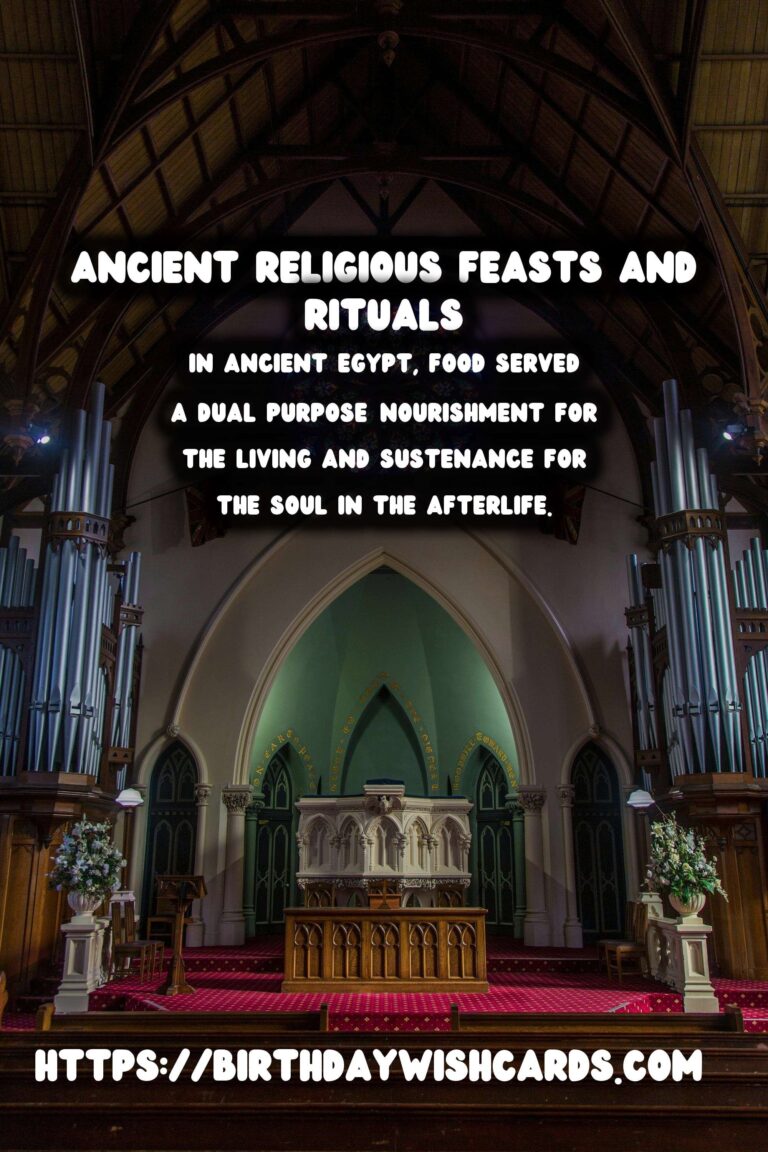
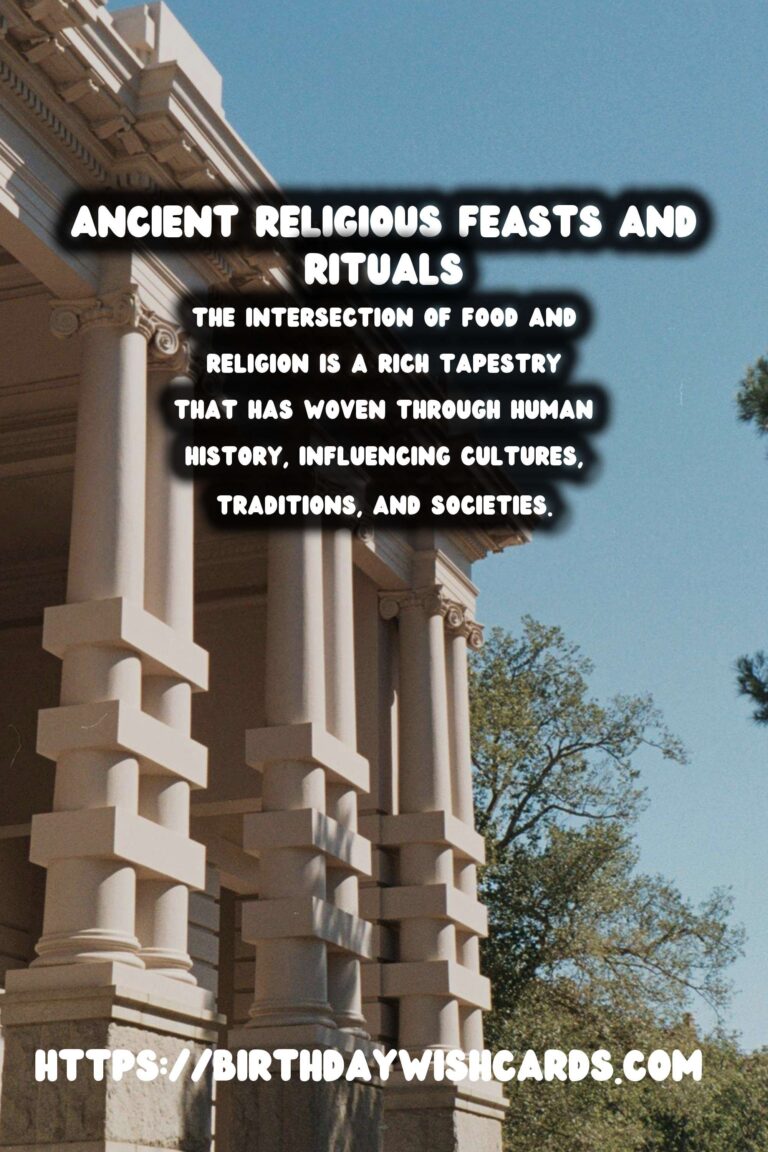
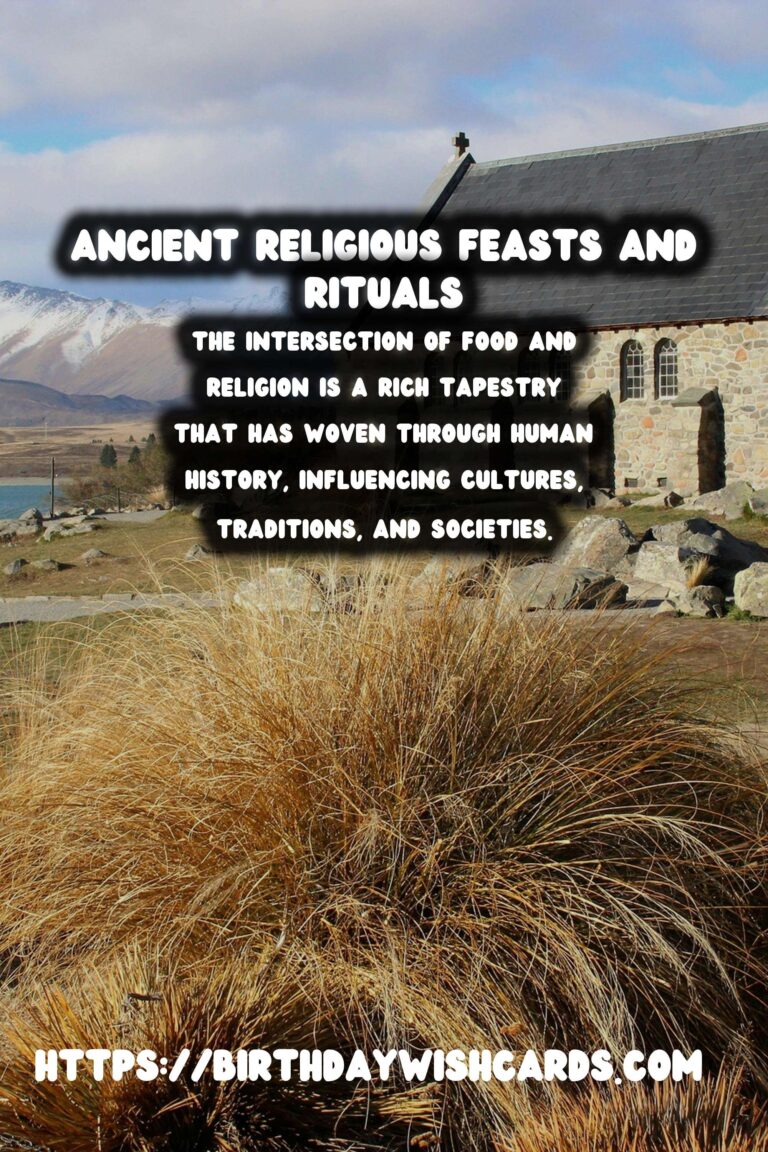
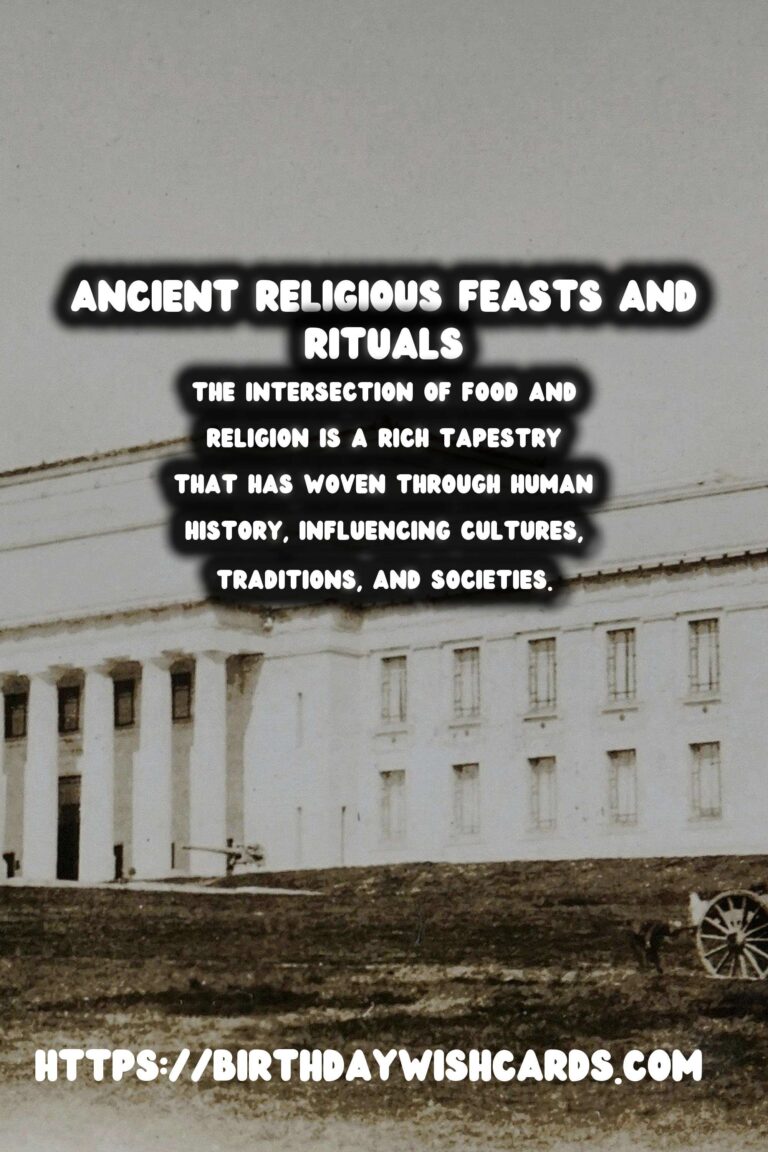
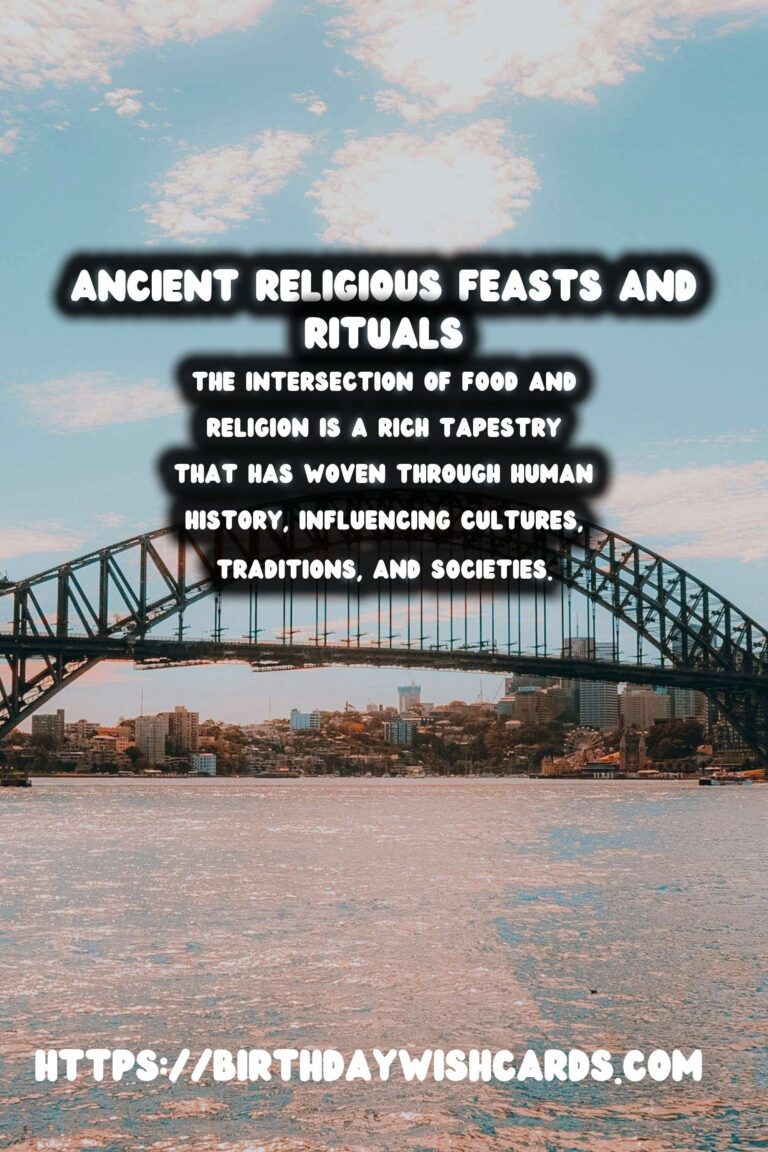
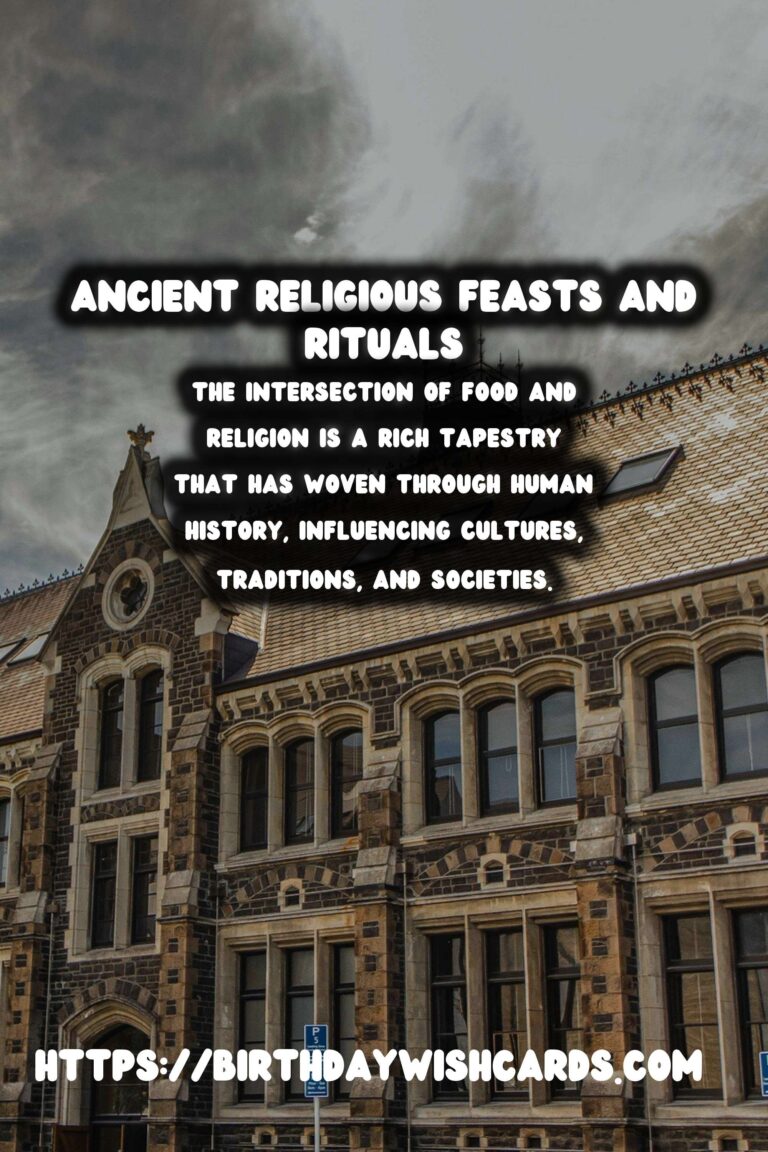

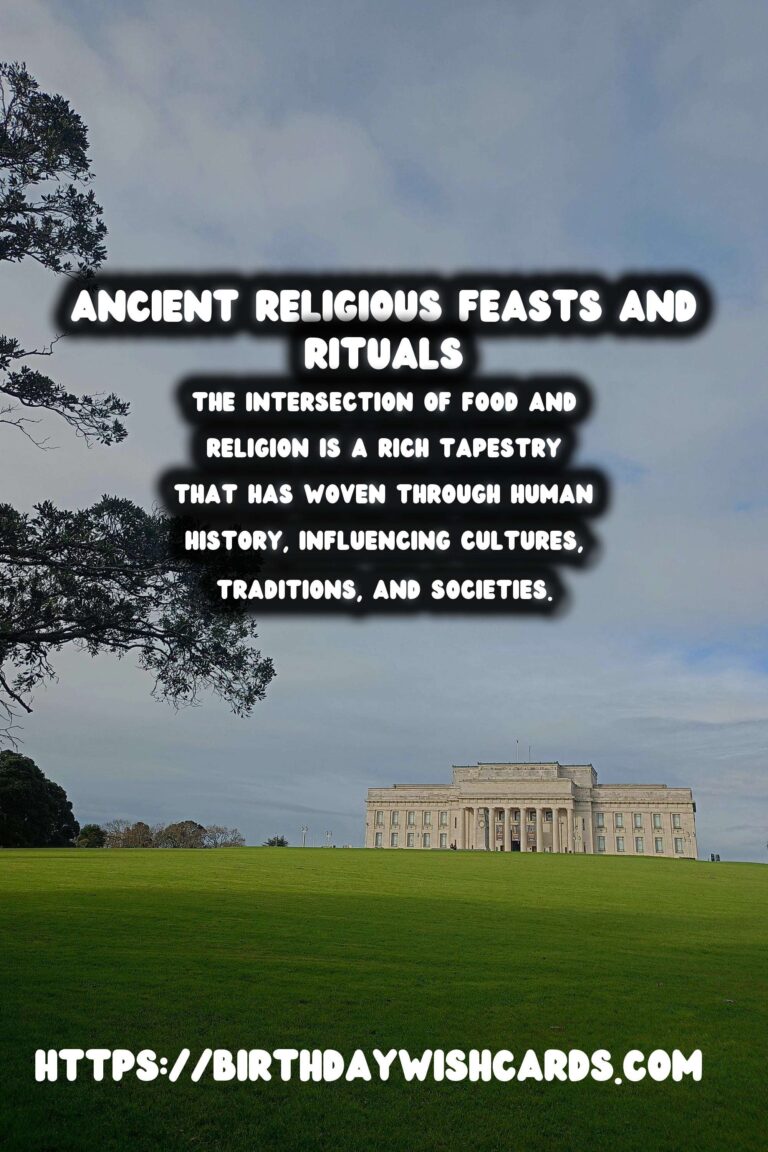

#CulinaryHistory #AncientReligions




